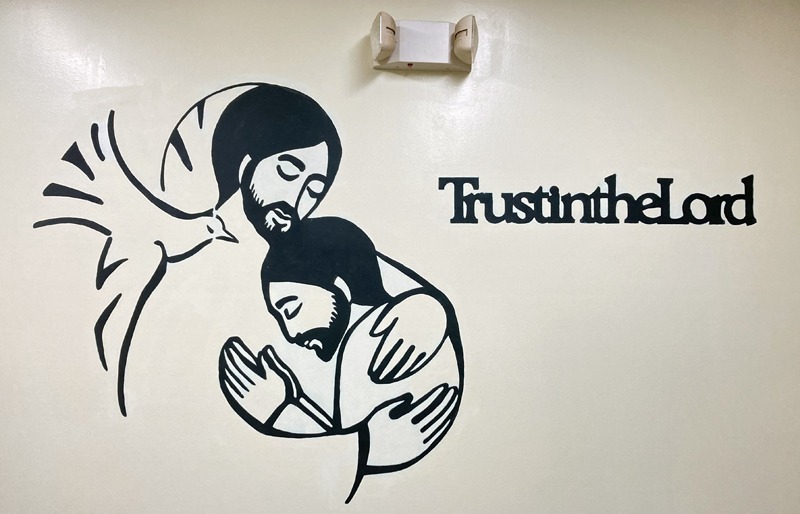Joseph House Workshop
The Workshop is a residential program for homeless men that teaches life-skills needed for employment. It opened in 2005.

The Workshop is located at 816 Boundary Street in Salisbury, Maryland, next door to the Joseph House Crisis Center. The phone number is 410-749-8150.
The Workshop is not an emergency shelter, but a long-term program for men who are homeless and either not working or not working enough to sustain themselves. It provides these men with a supportive place to live and opportunities to grow mentally, physically, and spiritually. Up to eight men can participate at a time.
The program is only for those men who are committed to making positive changes in their lives. It invites men to engage in a process that:
- moves them from homelessness to stable living
- trains them to find and maintain employment
- empowers them to live productive lives and to reach their full potential.
The Workshop itself is a one-story complex that was constructed out of an unused industrial building. The Workshop has a dormitory that sleeps eight, a kitchen, dining room, living room, bathrooms, laundry room, fitness room, small grooming room, two classrooms, computer room, A/V training room, staff bedrooms, volunteer room, and offices for the manager and staff.
Phase 1 of the program is classroom-oriented. Phase 2 provides employment support. Students move from one phase to the next when they are ready. The length of time each student spends in the program will vary. They may take as little as a few months or up to two years to finish.
The Workshop maintains a substance-free environment and is staffed 24 hours a day. It is funded through private, free-will donations.
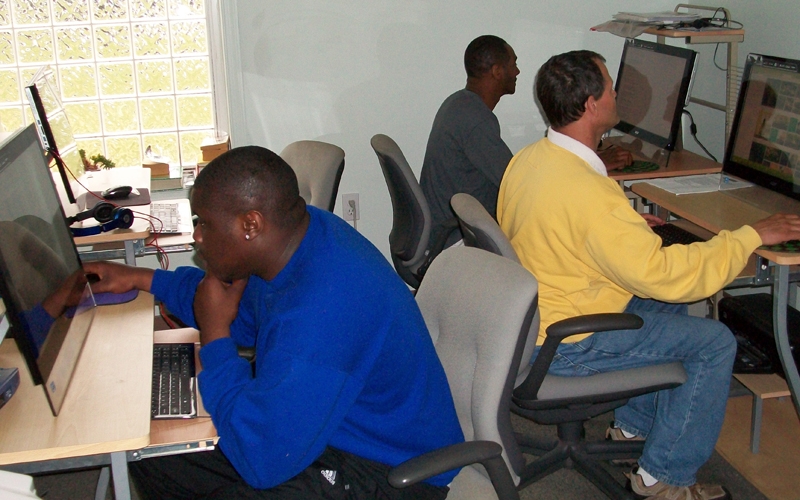

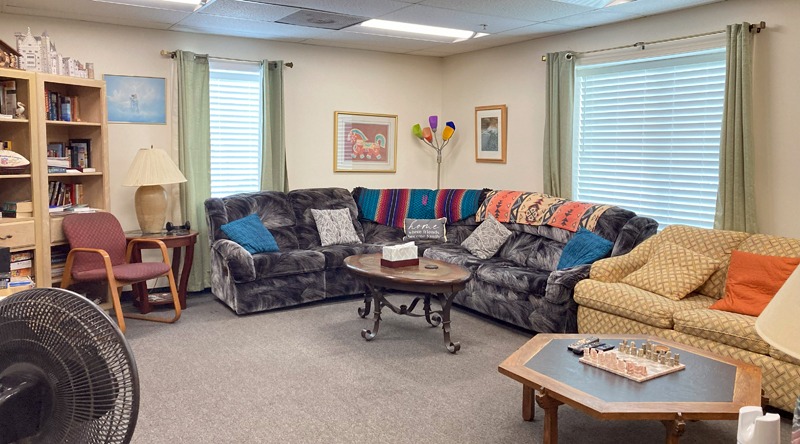
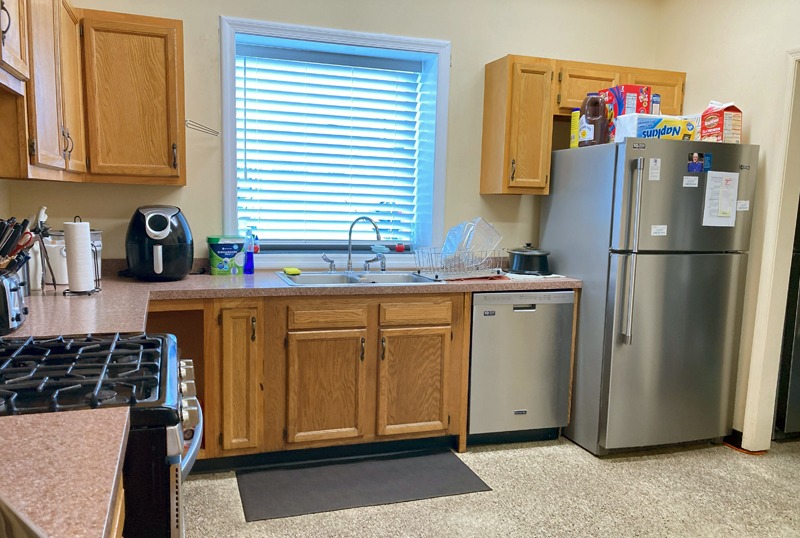

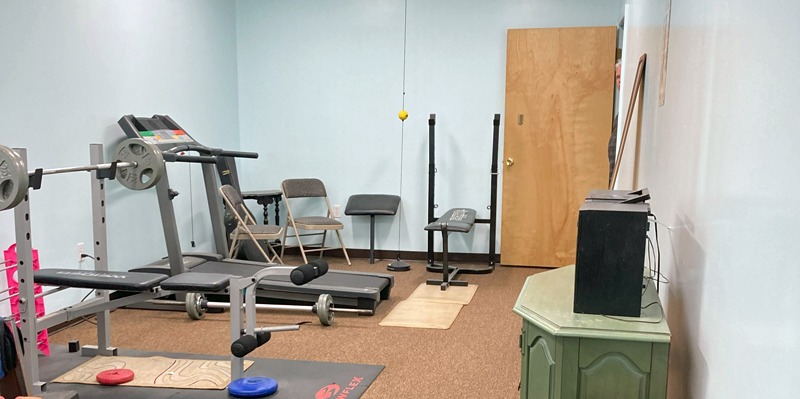

A Closer Look at the Program
PHASE 1 is classroom-based. Classes focus on the following topics:
- Values – Character building in areas of honesty, sense of responsibility, self discipline, spirituality, and respect for others
- Employment Preparation – Interviewing techniques, teamwork, and job search skills
- Addiction Recovery– Support services provided both in-house and in the community
- Special Needs – Referrals to community agencies for health and other services
- Relationships – Guidance in developing healthy relationships
- Community Service Involvement – Participation in Habitat for Humanity and similar efforts
PHASE 2 is employment-based. Residents begin working and receive support in the following areas:
- Transportation – Transportation to job sites and other essential services
- Case Management – Assistance in pursuing individual goals
- Money Management – Development of budgeting and other management skills; savings plan established
- Addiction Recovery – Support services continue
- Personal Support Systems – Guidance in establishing ongoing support systems for life beyond the Workshop, such as 12-Step programs and sponsors
- Family Relationships – Encouragement to rebuild and strengthen family relationships
Stories from Former Residents
Clayton, age 47, was born and raised down south. After moving to the Eastern Shore, he lived in a drug-infested area and was introduced to cocaine. He quickly became an addict. One day Clayton had this realization: “I had to make a choice whether I wanted a better way of life or death! Well, I wasn’t ready to die, so God intervened.”
Clayton described himself as a “dying drug addict” when he moved into the Workshop. With help from the staff and support services, he developed the strength needed to fulfill his hopes for a new life. Clayton started working full-time at a laundry facility. He attends AA and NA meetings on a regular basis and has resumed going to church services.
Clayton’s long term plans include becoming a Substance Abuse Counselor so he can share his hard-earned wisdom with others. He summed up his feelings this way: “I have gratitude because I am not using drugs today. I have peace of mind, and I’m happier than I’ve been in years. Thanks to my Higher Power.”
Russell, age 31, started using cocaine ten years ago. Within a few months, the drugs took over and he started to live a life of “shame and dishonesty.” He pushed away everyone who cared about him. In due course Russell became familiar with the local jail. When he wasn’t incarcerated, he lived in his car. One day he turned a corner because he was “sick and tired of being sick and tired.” He entered a rehab center and started his journey of recovery.
The next step for Russell was the Workshop. Our program helped him learn more about the disease of addiction. He has also attended classes on a variety of other topics: personal values, creative writing, job-interview preparation, goal setting, and the discovery of true manhood.
Russell gained knowledge that will help, in his words, “to build the self that was lost in addiction, to find my purpose.” He looks forward to one day going to college and becoming a counselor for teenagers. He knows firsthand the dangers ready to ensnare young people.
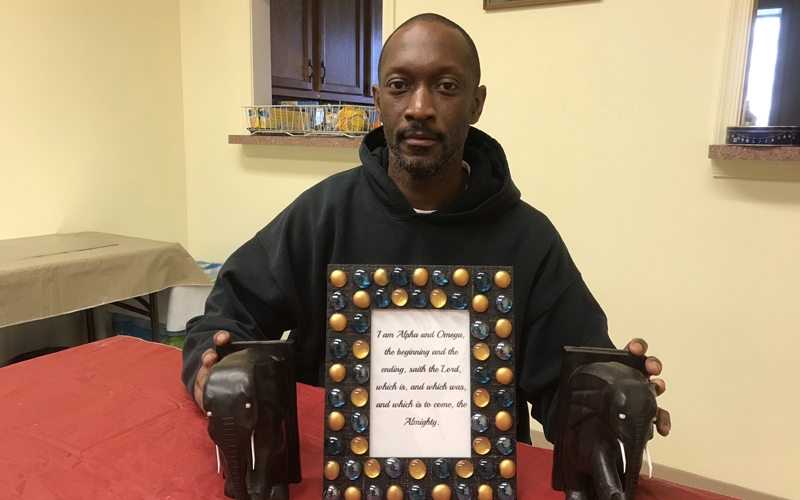
Related Blog Posts:
Newsletter: January 2022
Men with Hope and Purpose
Building Success, One Little Piece at a Time
